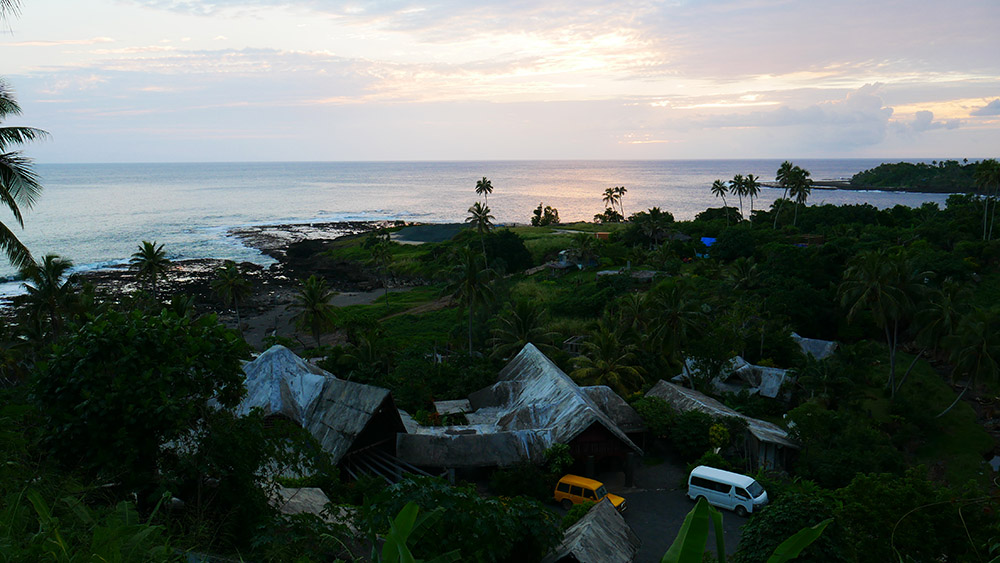
Understanding climate risk in Vanuatu is critical to the success of the tourism industry. Given the connections between economic, socio-cultural, political, and environmental variables in destinations throughout Vanuatu, assessments of climate risk requires a whole of system approach. Mapping linkages and interactions can help to explore climate risks and impacts and safeguard the industry from exposure and maladaptation.
Tourist destinations in small island developing states are facing increasing risk from climate change, threatening not only tourism businesses but all destination elements including the community and ecosystems. In order to reduce climate risk destination wide, this paper first enhances the IPCCIPCC The Intergovernmental Panel on Climate Change is the United Nations body for assessing the science related to climate change. It produces periodical reports, called 'Assessment Reports', which have an important role to play in informing international policy making. The most recent report is the 6th Assessment Report. risk framework by extending it with destination specific features.
This extended framework was drawn upon to develop a system model for Vanuatu, called the Vanuatu Tourism Adaptation System, using a qualitative multi-phase research design. The system highlights economic, socio-cultural, political, and environmental variables, how they are interlinked and thereby influence climate risk to destinations in Vanuatu. It provides a novel tool for understanding climate risk reduction within destinations as a holistic system and based on this understanding, destination trade-offs and policy recommendations are discussed. It can thus aid tourism and climate change decision makers in identifying and testing adaptation measures that benefit not only tourism but the destination more broadly, including the local community and ecosystem health.
This study fills a gap in the academic literature by enhancing the systemic understanding of climate risk in SIDSSIDS Small Island Developing States are a distinct group of 38 UN Member States and 20 Non-UN Members/Associate Members of United Nations regional commissions that face unique social, economic and environmental vulnerabilities. destinations and contributes to our understanding of tourism as a climate-resilient development pathway.
Publication
Loehr, J. (2020). The Vanuatu Tourism Adaptation System: a holistic approach to reducing climate risk. Journal of Sustainable Tourism, 28(4), 515-534. https://doi.org/10.1080/09669582.2019.1683185
Acknowledgements
I would like to thank Prof Susanne Becken, Prof Brendan Mackey and Dr Johanna Nalau for their support conducting this research and their very helpful feedback, as well as the three independent reviewers for their comments. I would also like to thank all participants and Ni-Vanuatu research assistant for their time and contribution to this study. The field work was supported by a grant from a private charitable trust that wishes to remain anonymous to avoid unsolicited funding proposals. The donor had no influence on any aspect of the research reported here.
About the author:
Dr. Johanna Loehr
Research Fellow, Griffith Institute for Tourism.
Request a copy of the article
If the download article link below doesn’t work, or leads to a page that requests payment, please click the link to the author profile above and request a copy directly and they will be happy to assist. Not all reviewed journal articles are published as ‘open access’, which are free to download.

